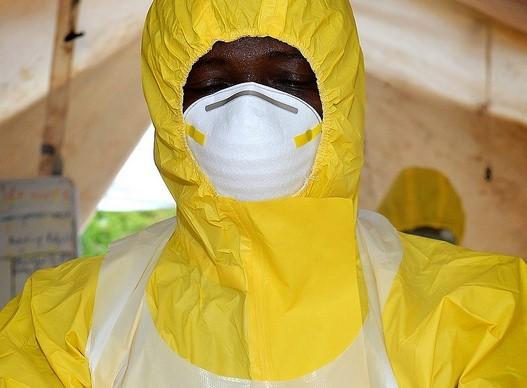Over the weekend, the number of confirmed Ebola cases in the new Democratic Republic of the Congo (DRC) outbreak in North Kivu province in the east of the country jumped from 4 to 13, and health officials said investigations are under way to see if sporadic illnesses and deaths in the area since May might be part of the outbreak.
The number of confirmed and probable cases hit 43, across six health zones, and include 33 deaths.
In other developments, the DRC's health ministry provided more details about the status of the response and the early cases, and an African media source said territorial officials are investigating a suspected Ebola case in yet another province—Haute Uele.
Tests on 33 more possible cases
The World Health Organization (WHO) said in an Aug 4 update that, as of Aug 3, 43 cases have been reported, including the 13 lab-confirmed illnesses and 30 probable cases. Also, tests are pending on 33 additional suspected cases. So far, 33 deaths have been reported.
Three healthcare workers have been sickened in the outbreak, one of them fatally, the WHO said. Infections in health workers is a concern in Ebola outbreaks, not only because the workers play a key role in battling the virus, but also because such infections can amplify the spread of the disease.
The confirmed and probable cases are in five health zones in North Kivu province and one health zone in Ituri province. Suspected cases have been reported in one more Ituri province health zone.
A mobile lab is already operating in Beni, and responders are exploring the possibility of setting up more testing locations, the WHO said.
Contact tracing is already under way, and so far 879 people have been registered for follow-up.
Earlier conventional lab tests highly suggest that the Ebola Zaire species is the cause of the latest outbreak, but the WHO said genetic sequencing is needed to confirm the finding. Ebola Zaire is the species most deadly to humans. Genetic characterization will help guide the use of vaccines and drugs; VSV-EBOV, the candidate vaccine furthest along in clinical trials, targets the Ebola Zaire species and could be used if the new outbreak strain matches the vaccine strain.
Ebola Zaire caused both the earlier DRC outbreak that was declared over on Jul 24 and the devastating 2014-16 outbreak in West Africa.
Genetic tests would also reveal any possible link between the new outbreak and the recent one declared over in the west of the country; however, the WHO said the two sites are located about 1,550 miles apart, and there's no evidence yet that suggests the outbreaks are related.
Community education and measures to address hygiene and sanitation issues have started through media and churches in affected communities, as well as in the neighboring countries of Uganda and Rwanda.
High risk of national, regional spread
Affected areas are home to more than 1 million displaced people, the WHO said. "The prolonged humanitarian crisis and deterioration of the security situation is expected to hinder response to this outbreak," the WHO said.
Given the complexities of the security situation in conflict-ridden North Kivu province, combined with internal population displacement, other disease outbreaks, and the area's long-term humanitarian crisis, the risk to the DRC and the region is considered high, the WHO said. The global risk of spread, however, is low, it added.
Health ministry adds response details
The case that first alerted provincial health officials to a possible Ebola outbreak involved a 65-year-old woman living near Mangina who died at home a few days after she was discharged from Mangina Reference Health Center, the DRC health ministry said in an Aug 4 statement.
After she was buried without precautions being taken, family members who cared for her got sick with the same symptoms, and seven of them died.
Local officials reviewing patient records identified earlier sporadic deaths in the community, and the ministry said investigations are ongoing to determine if there are any epidemiologic links among the cases.
The first Ebola treatment centers will be set up in Mangina, Beni, and Goma, the health ministry said.
Over the weekend the Canadian Doctors Without Borders (MSF) affiliate said on Twitter that it has started its response in Beni and that its teams are working on treatment centers and infection prevention and control. MSF recently played a key role in operating treatment centers in the DRC's outbreak in Equateur province.
In vaccine developments, the ministry said the cold chain needed to store VSV-EBOV doses was slated for deployment over the weekend to Beni, and once conditions reach -70°C (-94°F), the vaccine will be sent there. The country's expanded immunization program has 3,220 doses in stock in Kinshasa.
Suspected case in another DRC province
Meanwhile, health officials in the DRC province of Haute Uele, in the northeastern corner of the country, are investigating a possible Ebola case, according to an African media report translated and posted yesterday by FluTrackers, an infectious disease news message board.
A health official from Watsa territory said a 35-year-old man from city of Durba died on the evening of Aug 3 after experiencing Ebola-like symptoms that included vomiting and bleeding.
Authorities have identified 15 of the man's contacts, have arranged for a safe burial, and sent samples to Beni in North Kivu province for testing.
See also:
Aug 4 WHO statement
Aug 4 DRC health ministry statement
MSF Canada Twitter post
Aug 4 FluTrackers post
Aug 3 CIDRAP News story "WHO: Ebola DRC outbreak taking place in 'war zone'"

















